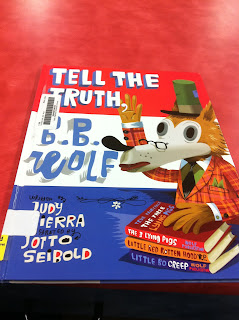There are some books, some authors, whose styles resonate soundly within me.
To Kill a Mockingbird is that way. Every time I crack it open, I literally sigh my way through it because it is just so...beautiful.
I really like to read and enjoy a rather nice variety of genres, but I LOVE it when an author takes ordinary words and crafts them into something so pretty it can only be called art.
Maya Angelou is an amazing wordsmith, and I adore her style. When I was about 2 chapters in to this book, all I could think was
I will never forgive my high school English teachers for not exposing us to this.* I mean, we had to read "Hedda Gabler," for cryin' out loud! Ugh.
I Know Why the Caged Bird Sings is Maya Angelou's autobiography. She and her older brother Bailey were brought South to live with their grandmother in Stamps, Arkansas when they were children (this would be the 50's), and encountered more than one brush with racism in its ugliest forms. The best parts of this book are Maya's penning of segregation and racism in ways most people have never fathomed. Before long they were returned to live with their mother, in California. She was a wild woman with a fierce love for her children but little regard for structured parenting. Maya's experiences living with her mother taught her everything she wanted to know and didn't want to know about family. Sadly, young Maya was sexually abused for a lengthy period of time, and soon after she and her brother returned to Arkansas for a time before a string of moves involving their father, their mother, and their grandmother. As Maya grew into a young woman, she questioned everything about herself, including her appearance, her sexuality, and her relationships with her family members. This "self-discovery" led to a pregnancy, and at a very young age Maya Angelou became a mother to her son.
Eventually Maya ended up in the theater and, through both her innate ability to paint pictures with her words and her proclivity for delivering them theatrically, has become an icon of both this century and the last. She continues to write and speak about her life, and the literary world is a better place because she's in it.
Some of my favorite lines from the book:
On Maya's and Bailey's arriving in Stamps, Arkansas: "The town reacted to us as its inhabitants had reacted to all things new before our coming. It regarded us a while without curiosity but with caution, and after we were seen to be harmless (and children) it closed in around us, as a real mother embrace's a stranger's child. Warmly, but not too familiarly." pg. 5
"Of all the needs (and there are none imaginary) a lonely child has, the one that must be satisfied, if there is going to be hope and a hope of wholeness, is the unshaking need for an unshakable God." pg. 23
On her relationship with her brother: "Bailey was the greatest person in my world. And the fact that he was my brother, my only brother, and I had no sisters to share him with, was such good fortune that it made me want to live a Christian life just to show God I was grateful." pg. 22
Maya's feelings while listening to a white politician giving a speech at her high school graduation: "We were maids and farmers, handymen and washerwomen, and anything higher we aspired to was farcical and presumptuous." pg. 180
*I suspect that the reason
I Know Why the Caged Bird Sings was kept from us in high school was the chapter toward the end in which she struggles with issues relating to her sexuality. If I'm right, I find this rather unfortunate. I'm a full believer in taking care not to expose children and young adults to material not developmentally appropriate. I also believe that we all need to do a better job of making sure that we aren't "protecting" children and teenagers from issues
we find too uncomfortable ourselves. Yet again, a post for another day.

I Know Why the Caged Bird Sings (Maya Angelou)















